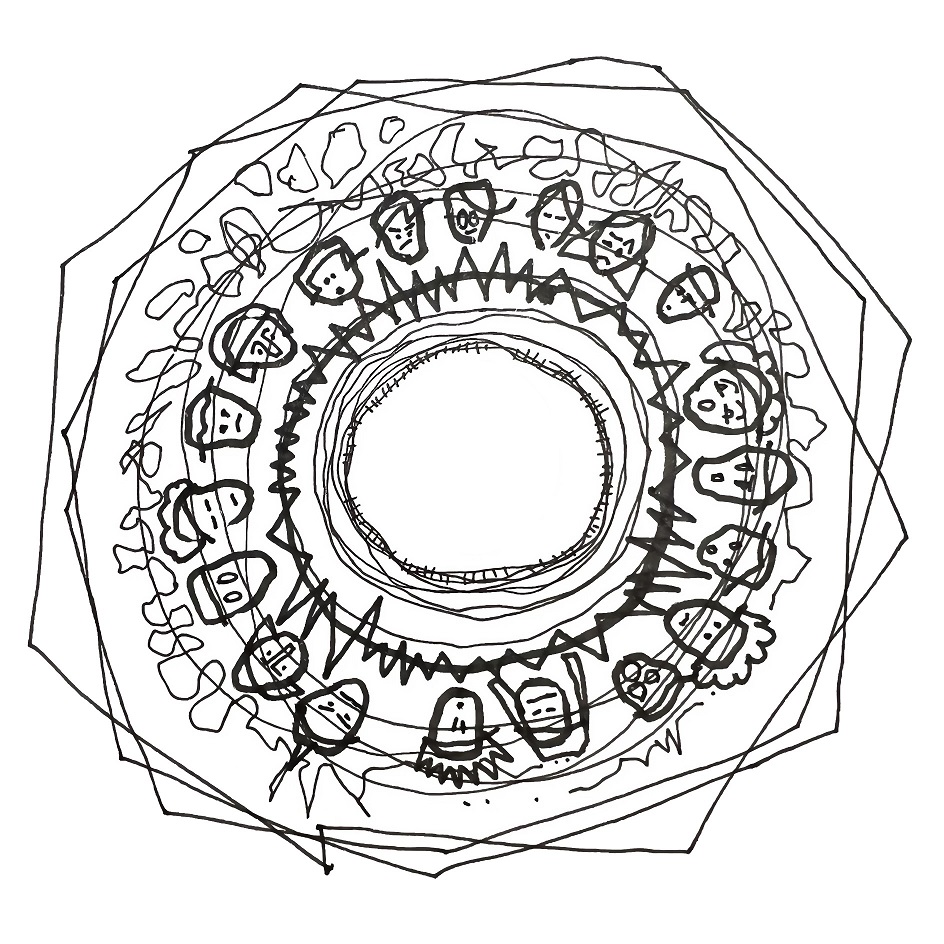
Imagine living half of your life thinking you’re chugging along like everybody else. Then one day, you trip and fall. As you gather yourself up, somebody slips a note under your fist. It says, “You’ve got it all wrong.”
Later, you notice you believe everyone is talking behind your back because they think you’re weird. For what seems like your whole life. Your siblings tease you because you take things so literally, and you tattle on them because people are supposed to be friendly, follow the rules, and obey Mom and Dad. You get told to “just stop crying” and “stop biting your fingernails,” and you know better than to make funny noises or tap on things. No one likes it when people do that. And it’s not right for people to act in ways that disturb others.
And you want to be liked, so you try to meet expectations. But sometimes you can’t.
So you find ways to express yourself and share the parts of you that others can’t see.
You grow toward adulthood with anxiety shadowing your every step because all you know is that you give bizarre answers to class discussion questions or completely miss the point everyone else saw right away. As you launch your independent life, bosses never seem to understand you, and you can’t guess what they expect you to do. When you figure out their goals, it’s seldom anything that comes naturally to you. And when you do what you think is “right,” they get pissed off.
You go out on dates and find partners, and time after time, you find out they cheated on you. Everyone around you knew it was happening, but you never picked up on it. Then you try marriage and have a child, only to learn that you and your spouse hardly agree on anything, and you wonder why you didn’t realize that before.
People – specialists, mostly – tell you that your child has Autism, and you disagree. Because you understand the kid and why he acts that way. You look online for checklists of symptoms and think, “But I do those things, and I’m okay (aren’t I?)” Finally, you give in and go along, cringing to know that your baby is suffering through so many things that you suffered. You know how much it hurts. But you don’t want to show it. Because then people might – again – think you’re weird. And you’ve pulled off the act for so long. You can’t bear to face that ridicule again.
Maybe it’s the pressure of day-to-day life. Perhaps it’s a mid-life crisis, but as you approach forty years, your inner life explodes into a series of too-vivid dreams and keening existential doubts. On top of that, since you’ve started having them again, you revive your early-twenties fascination with religious experiences. No one asked for your permission, but it feels like a super-human power is pumping a millennium’s worth of data and insight into your heart and head every night while you sleep. It’s very distracting. Don’t they care that you have a toddler, a marriage, and a career to manage?
It all falls apart. The marriage ends, and job changes occur bi-yearly for a while. You try retreating into your faith community, but it’s there that it finally dawns on you that you’re very different from most people.
A decade passes after your initial mental/spiritual crisis (which you handled on your own with the divorce), then another one hits. This one doesn’t let you off easily. Your inner world grows more potent than the outer one. You decide the inner world is the only one you can trust, the only one that knows and understands you. You’ve read and seen enough books and movies to believe that complete trust must be your calling and salvation. You commit wholeheartedly to what you see, feel, and know.
You act on it.
Others perceive the result as schizophrenia, and you end up incapacitated and hospitalized. The shrink recognizes the incident as a stress reaction and sends you home with the advice to “avoid overwhelming stress and remember what it does to you.”
Your inner world has deceived you, and you feel lost, beyond description or relief. But you’re well-practiced at putting on a strong demeanor, and that skill carries you for a while longer.
Now imagine that after a few years, you feel like your life begins to normalize, and just as you think things will be okay and you’ve found your niche in life, a truck hits you. Literally, a concussion and injuries knock you out of your “normal life” for months. At some point, the doctors decide you’ve improved as much as possible, and you return to work. But your brain is different than before.
This shift scares you because you already doubted your brain was your friend. Now it’s your most significant liability. You continue challenging yourself to resume your pre-collision life, meeting a mixture of successes and failures.
Then one morning, a very dear friend – the person you trust most in life – sends you a link to a presentation about female adults on the Autism Spectrum. You follow the link and read. Nail-biting returns as the pieces fit together, and all you can think is, “Dayum.” Next, you attend several appointments with the expert and learn your suspicions are correct. The shock of that affirmation brings you to re-frame your entire life. And gradually, you begin to discover your people. But you also hide more than before.
In 850 words or less, that’s my life until I learned, at age 56, that I’m autistic. I found a single word that closely describes my experiences and can help others understand me.
It’s been quite an adjustment to modify my thinking to include myself as “autistic” rather than thinking of Autism as something I want to help my son manage. We spent many years focusing on accommodations and best practices for him, yet I never allowed myself, “Why didn’t I have these opportunities?” I understood the chances were slim that my parents would have noticed I had significant issues. It was the Sixties, we lived in the Deep South, and I’d grown into an expert at masking. I thought it was part of growing up, which was supposed to be complicated and challenging.
I’m writing now because I want to connect with and thank others who’re forging new directions and creating abundant resources for folks like me. Before learning how Autism often manifests differently across genders, I didn’t feel qualified to identify with my son’s diagnosis. Now, as a 60-year-old female, I’m learning a new language that younger Auties grow up with. I’m excited about what the future may hold for us.
Thanks for reading. I know I’m not alone, as an older adult discovering Autism. I’d love to learn if you share some of these experiences, have found helpful resources or discovered effective methods to deal with living outside the “normal” range of the Spectrum.

